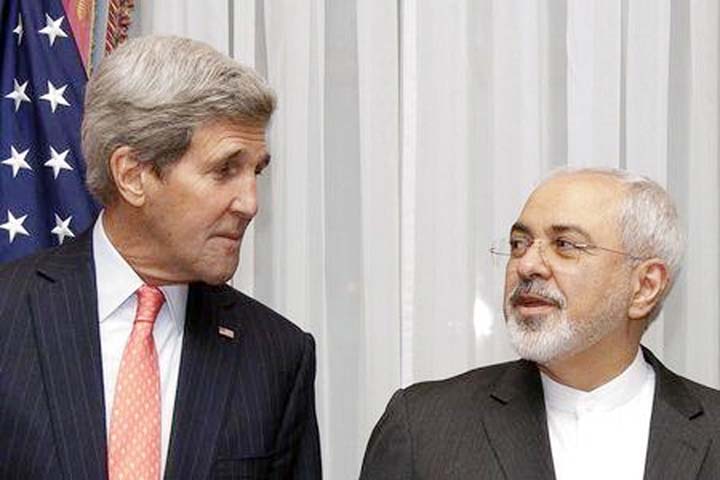
Reuters, United Nations :The United States and five other major powers are closer than ever to a deal with Iran that would end a 12-year-old standoff over Tehran’s nuclear program, though more tough negotiations lie ahead, Secretary of State John Kerry said on Monday.Kerry spoke at the United Nations on the opening day of a month-long conference taking stock of the 1970 nuclear Non-Proliferation Treaty and ahead of a meeting in New York with Iranian Foreign Minister Mohammad Javad Zarif, their first face-to-face encounter since recent marathon talks in Lausanne, Switzerland.Zarif and Kerry met later on Monday at the Iranian U.N. ambassador’s residence across from Central Park and discussed efforts to secure a final agreement between Iran and the six powers by a June 30 deadline.The meeting was “productive,” a senior U.S. State Department official said, speaking on condition of anonymity. “They discussed the work that political directors and experts did last week in Vienna and the path forward for the talks,” the official added.Kerry told the 191 NPT parties: “We are, in fact, closer than ever to the good, comprehensive deal that we have been seeking, and if we can get there, the entire world will be safer.” He said bringing Iran back into compliance with the pact was always at the heart of negotiations with Tehran.”If finalized and implemented, (an agreement) will close off all of Iran’s possible pathways to the nuclear material required for a nuclear weapon and give the international community the confidence that it needs to know that Iran’s nuclear program is indeed exclusively peaceful,” he said.Kerry added, however, that “the hard work is far from over and some key issues remain unresolved.”In remarks to Iranian state television upon his arrival in New York, Zarif echoed the concerns about unresolved issues in the talks with the United States, Britain, France, Germany, Russia and China.”Beside taking part in the conference, we have come here to listen to Americans’ explanations on the U.S. administration’s undertakings and its domestic policies,” Zarif said.”We consider the U.S. government responsible for fulfilling its international commitments under international laws,” he said. “No government can evade such commitments because of its domestic issues.”Zarif appeared to be referring to U.S. Republican senators’ pledge to try to toughen a bill giving Congress the power to review a nuclear agreement with Iran, a move that could further complicate the talks. In a tentative deal reached between Iran and the six powers earlier this month in Lausanne, Tehran – which denies seeking nuclear weapons – agreed to curb sensitive nuclear work for at least a decade in exchange for ending sanctions that have crippled its economy.Diplomats need to iron out details about the timing of sanctions relief, the future of Iran’s atomic research and development program, the exact nature of International Atomic Energy Agency monitoring, and what kind of uranium stockpiles Tehran will be allowed to keep under any final accord.

